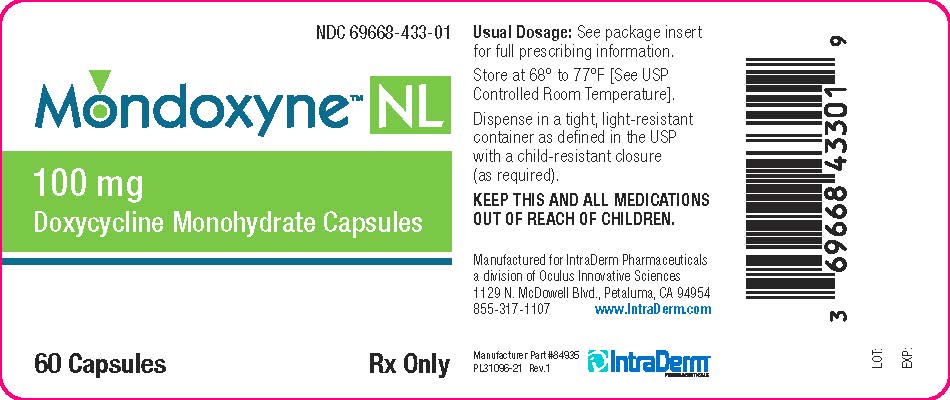
Mondoxyne Nl 100mg | Doxycycline Capsule while Breastfeeding
What are the risk associated with Mondoxyne Nl 100mg | Doxycycline Capsule usage while breastfeeding? What precautions shall I take while using it in breastfeeding?

Mondoxyne Nl 100mg | Doxycycline Capsule Breastfeeding Analsys
Doxycycline anhydrous while Breastfeeding
Low RiskCAS Number: 564-25-0
Excreted into breast milk in quantities that would be clinically significant, however, intestinal absorption by infant's gut is hampered because of formation of chelating products by union with the milk's calcium. Tetracycline is at lesser amount excreted into breast milk and at higher proportion bound to calcium, hence, it is fewer absorbed than Doxycycline. Thus, it is a optimal alternative while breastfeeding. Long-term treatments are not recommended (over 3-4 weeks) since it may cause damage of the growth cartilage, teeth discoloration and imbalance of intestinal flora. Be aware of false negative results that may be obtained from infants with bacterial cultures when the mother is on antibiotics.
Mondoxyne Nl 100mg | Doxycycline Capsule Breastfeeding Analsys - 2
Doxycycline anhydrous while Breastfeeding
CAS Number: 564-25-0
A number of reviews have stated that tetracyclines are contraindicated during breastfeeding because of possible staining of infants' dental enamel or bone deposition of tetracyclines. However, a close examination of available literature indicates that there is not likely to be harm in short-term use of doxycycline during lactation because milk levels are low and absorption by the infant is inhibited by the calcium in breastmilk. Short-term use of doxycycline is acceptable in nursing mothers. As a theoretical precaution, avoid prolonged or repeat courses during nursing. Monitor the infant for rash and for possible effects on the gastrointestinal flora, such as diarrhea or candidiasis (thrush, diaper rash).
What should I do if I am breastfeeding mother and I am already exposed to Mondoxyne Nl 100mg | Doxycycline Capsule?
During whole lactation period you shall first discuss with your doctor and then together you shall decide whether you shall take that drug or not however if you have already taken Mondoxyne Nl 100mg | Doxycycline Capsule then you shall inform your doctor, But you should not be worried too much as Mondoxyne Nl 100mg | Doxycycline Capsule comes in category of low risk drug.
I am nursing mother and my doctor has suggested me to use Mondoxyne Nl 100mg | Doxycycline Capsule, is it safe?
Mondoxyne Nl 100mg | Doxycycline Capsule comes in category of low risk and if your doctor is aware that you are breastfeeding it should be ok to use
If I am using Mondoxyne Nl 100mg | Doxycycline Capsule, will my baby need extra monitoring?
Not much
Who can I talk to if I have questions about usage of Mondoxyne Nl 100mg | Doxycycline Capsule in breastfeeding?
US
National Womens Health and Breastfeeding Helpline: 800-994-9662 (TDD 888-220-5446) 9 a.m. and 6 p.m. ET, Monday through Friday
UK
National Breastfeeding Helpline: 0300-100-0212 9.30am to 9.30pm, daily
Association of Breastfeeding Mothers: 0300-330-5453
La Leche League: 0345-120-2918
The Breastfeeding Network supporter line in Bengali and Sylheti: 0300-456-2421
National Childbirth Trust (NCT): 0300-330-0700
Australia
National Breastfeeding Helpline: 1800-686-268 24 hours a day, 7 days a week
Canada
Telehealth Ontario for breastfeeding: 1-866-797-0000 24 hours a day, 7 days a week
